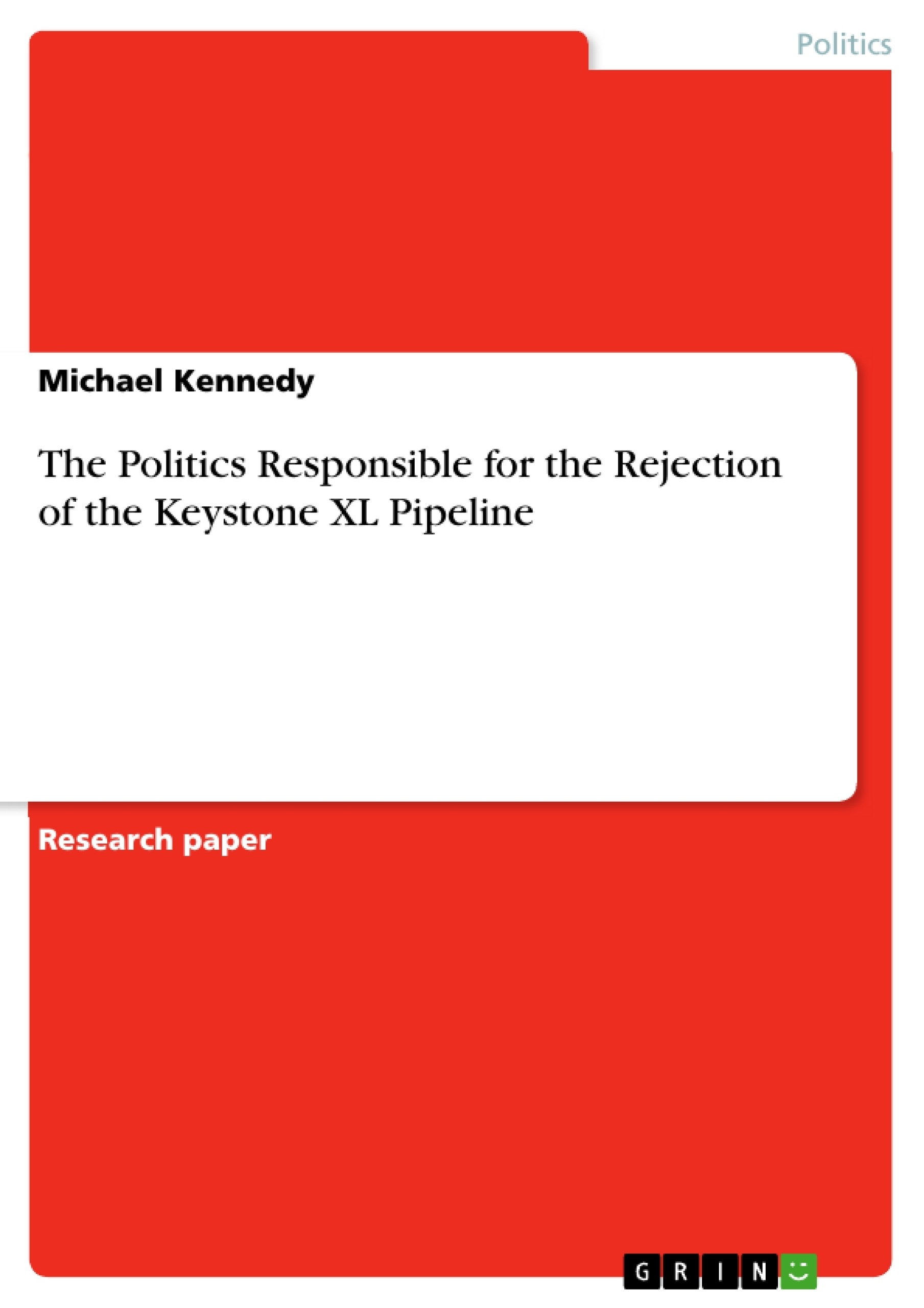TransCanada Corporation’s Keystone XL Pipeline is a highly contentious matter in Canada and the United States as its proposed construction has been fraught with economic, environmental, and political issues. Since the pipeline was first proposed in 2008 as an extension of the already constructed Keystone Pipeline, the Keystone XL Pipeline has been most strongly opposed by environmental groups and certain political figures. Pressure from
these various groups was largely responsible for U.S. President Barack Obama’s decision in November 2011 to reject the immediate construction of the pipeline and instead postpone the decision to 2013. The postponementto construct the pipeline waslargely a decision to conduct further investigations of the environmental concerns that opponents to the pipeline have raised.
Those in support of the pipeline have suggested that the postponement to 2013 was merely a political ploy in order to avoid the pipeline issue, while appeasing environmentalists, until after the 2012 presidential election. Regardless of the president’s reason to delay the pipeline,relations with Canada have been negatively affected, it has continued to solidify U.S. dependence on foreign oil in comparatively more volatile regions, and has increased the Republican-dominated Congress’s pressure on the president. These opposing pressures appear to have had a heavy influence on the Obama administration as it now seems that a certain degree of policy backpedalling is evident while the president attempts to appease both sides of the debate.
Inhaltsverzeichnis (Table of Contents)
- The Politics Responsible for the Rejection of the Keystone XL Pipeline
- The Presidential Permit Process
- Arguments in Support of the Keystone XL Pipeline
- Arguments in Opposition to the Keystone XL Pipeline
- The Keystone XL Pipeline and U.S. Domestic Energy Policy
- The Keystone XL Pipeline and the 112th Congress
- Conclusion
Zielsetzung und Themenschwerpunkte (Objectives and Key Themes)
This article analyzes the political factors that led to the rejection of the Keystone XL Pipeline in 2012. It examines the arguments both for and against the pipeline, exploring the economic, environmental, and energy security implications of the project. The article also discusses the role of Congress and the Obama administration in the decision-making process.- The political process surrounding the Keystone XL Pipeline
- The economic benefits and risks associated with the pipeline
- The environmental concerns surrounding the pipeline
- The relationship between U.S. domestic energy policy and foreign policy
- The influence of lobbying efforts on policy decisions
Zusammenfassung der Kapitel (Chapter Summaries)
- The Politics Responsible for the Rejection of the Keystone XL Pipeline: This chapter introduces the Keystone XL Pipeline project and its history, outlining the political context and the key players involved in the decision-making process.
- The Presidential Permit Process: This section details the process for obtaining a presidential permit for cross-border pipelines, outlining the role of the U.S. State Department and the requirements for approval.
- Arguments in Support of the Keystone XL Pipeline: This chapter explores the economic benefits of the pipeline, including job creation, energy security, and economic growth, as well as the role of Canada and the United States in the project.
- Arguments in Opposition to the Keystone XL Pipeline: This section delves into the environmental concerns surrounding the pipeline, highlighting the potential risks to the environment and the impact on the Oil Sands industry.
- The Keystone XL Pipeline and U.S. Domestic Energy Policy: This chapter examines the implications of the pipeline project for U.S. domestic energy policy, exploring the relationship between fossil fuel dependence and clean energy development.
- The Keystone XL Pipeline and the 112th Congress: This section discusses the role of Congress in the decision-making process, focusing on the influence of the Republican-led 112th Congress and their efforts to expedite the permit approval process.
Schlüsselwörter (Keywords)
The main keywords and focus topics of this article include Keystone XL Pipeline, presidential permit, environmental impact, energy security, economic growth, oil sands, lobbying, U.S. foreign policy, domestic energy policy, and the 112th Congress.- Quote paper
- Michael Kennedy (Author), 2012, The Politics Responsible for the Rejection of the Keystone XL Pipeline, Munich, GRIN Verlag, https://www.grin.com/document/206461




